Eden McCallum – Management Consultant Survey 2024/25
A better way of working: independent management consultants are finding greater impact outside the traditional firm
In 2000, when Eden McCallum started pioneering the delivery of consulting projects by teams of independent consultants (ICs), the idea that independents could deliver superior service to clients was often viewed with scepticism. Today, ICs are a well-established presence in the market, and clients are delighted with this way of working.
To assess how consultants themselves feel about their working lives, Eden McCallum recently carried out its latest biannual survey, in conjunction with London Business School and HighPoint Associates. The survey gathered the views of more than 500 professionals, both independent consultants and those currently employed in traditional firms. The results demonstrate that life as an IC holds many significant attractions, and that most are in it for the long haul.
Notably, 60% of ICs say they are extremely or very satisfied with their careers, compared to 31% of employed consultants. Satisfaction levels for ICs remain strong since a dip during the pandemic, but have dropped back for employed consultants, and are now lower for them than they were during the pandemic.

Not surprisingly, with these satisfaction levels, independent consultants are sticking with this career choice. Over 70% of respondents expect to remain working as an IC for more than 3 years – more than double the 32% who felt that way in 2002, and significantly up from the 56% who believed that in 2011.
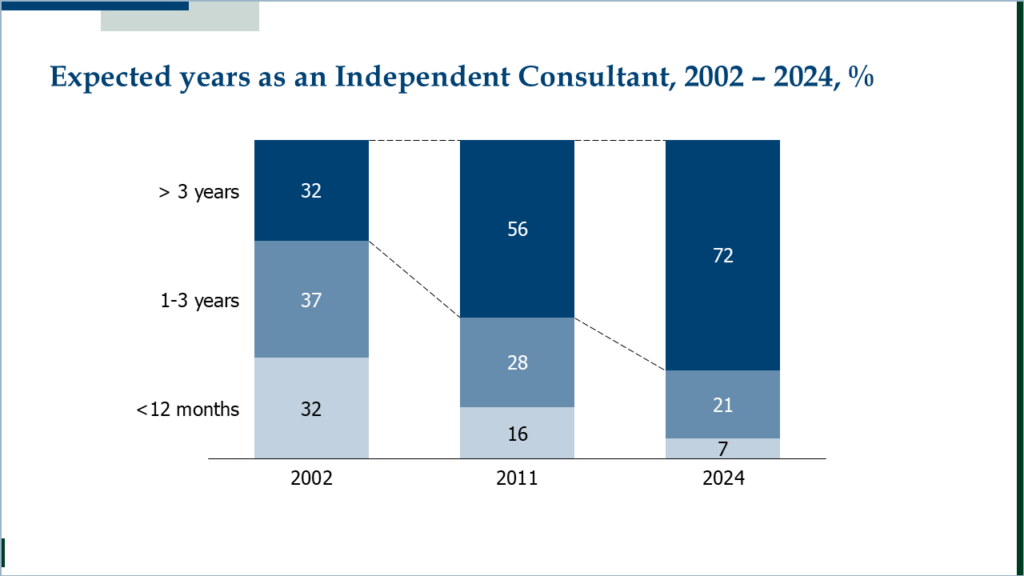
What explains this strong preference for the IC route? The answer lies in the quality of the work ICs are doing, the relationship they have with clients, and the flexibility of this professional lifestyle. In terms of financial reward, the picture is also positive.
Some data points
The evidence is striking. Around 90% believe that projects delivered as an IC represent better value for money for clients and are more efficient. Around 75% say their work is now more collaborative, has greater impact, and is more likely to be implemented than when they were working as an employed consultant at a traditional firm.
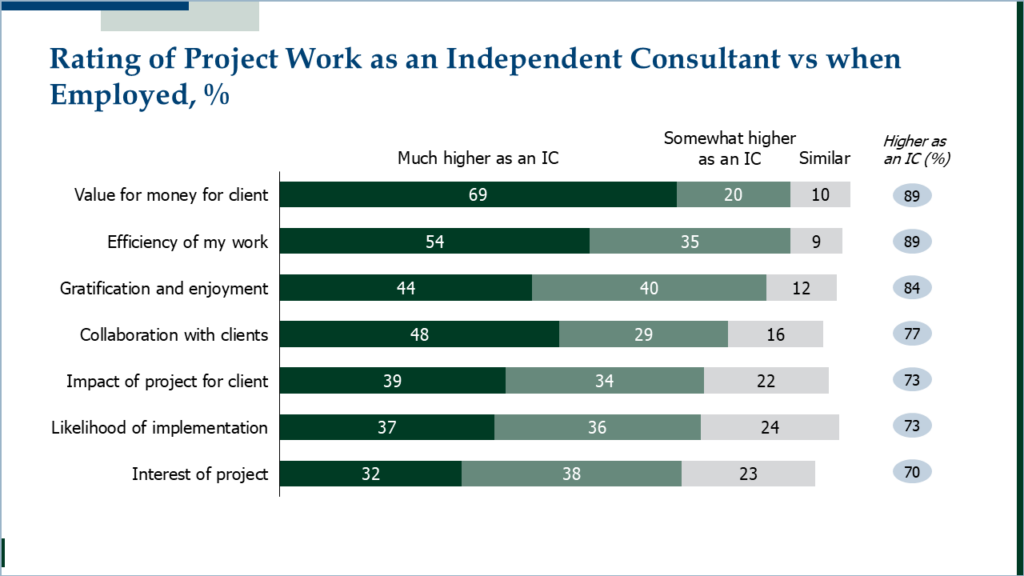
It does not end there. When they compare their current and former personal experience, more than 90% of ICs think that they have more flexibility and control over their work and a better work-life balance than when they were employed. Three quarters say they enjoy greater respect from their clients. And 70% say they are more fairly rewarded.
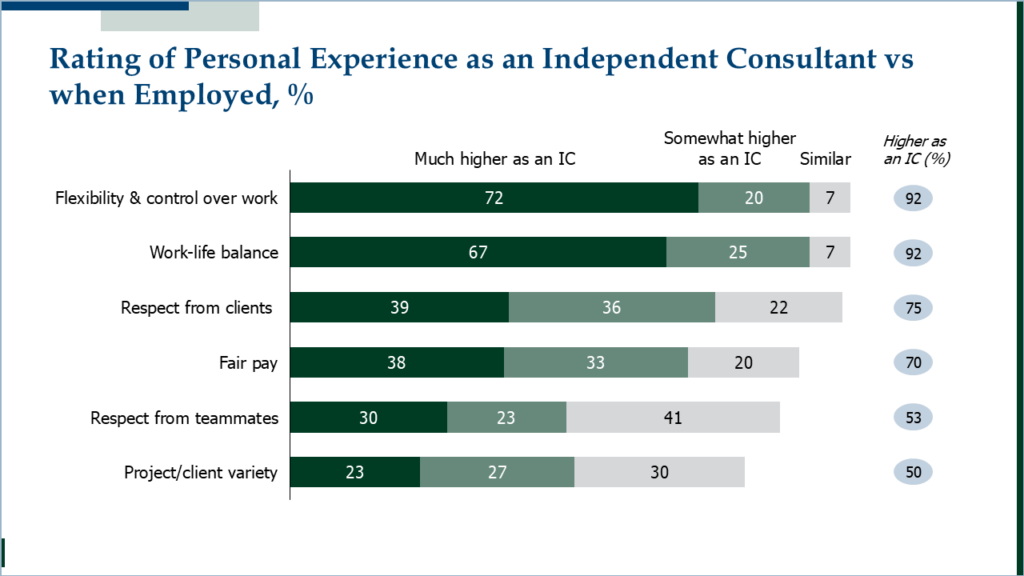
This stuff matters
ICs are highly content with the things that matter most to them – unlike their employed peers. In terms of client impact, intellectual challenge, choice of work, and work-life balance, ICs report strong satisfaction. By way of contrast, employed consultants have far lower levels of satisfaction on the things that matter most to them, except financial security.
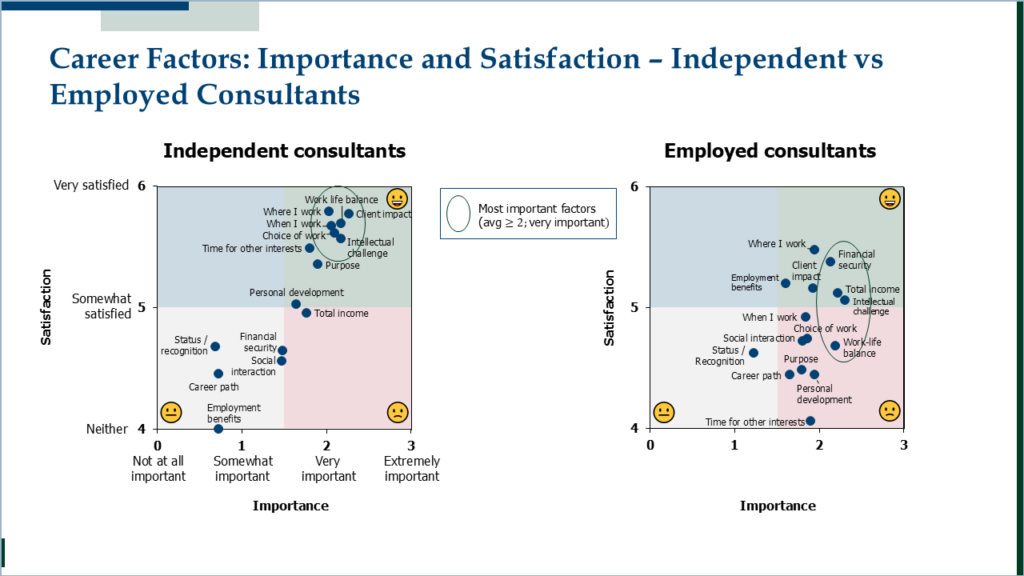
Just rewards and the gender gap
ICs have little to worry about when it comes to being fairly rewarded. Two-thirds of ICs earn as much or more than they did as employees. This has turned out to be a stable trend historically.
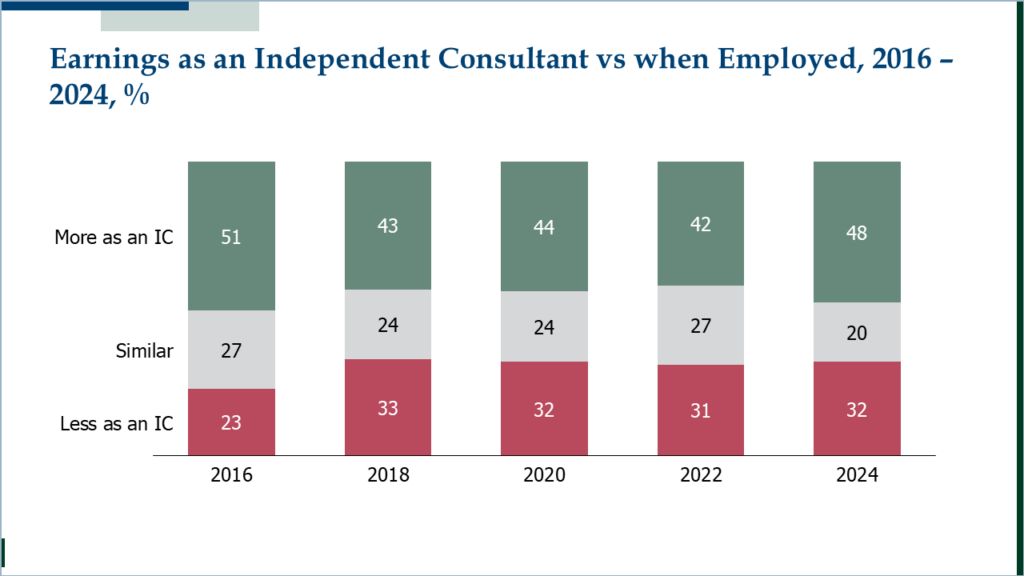
Another perhaps unexpected benefit of the IC option is that it helps to close the gender pay gap. Women are more likely than men to earn more as an IC, with over half reporting higher earnings than in their previous employed roles.
And the IC route may also be good news for younger consultants who prefer to back themselves in the open market, rather than being tied to a big firm. Consultants under the age of 40 are particularly likely to earn more as independents, with nine out of ten reporting earnings equal to or greater than their pay when employed.
Another gender gap may be of interest: female ICs are generally more satisfied than male ICs, particularly with the most important factors in their careers (client impact, flexibility and choice, intellectual challenge, work-life balance).
The “new normal”
During the Covid pandemic many professionals adopted more flexible ways of working, which was a saving grace at a time of otherwise unwelcome disruption. It seems that hybrid working is now established as a “new normal”. ICs work remotely about 70% of the time on average, while employed consultants’ time is split c.50-50 remote and on site. Both ICs and employed consultants largely expect the amount of remote vs onsite working to remain at current levels – this new normal appears to have settled in.
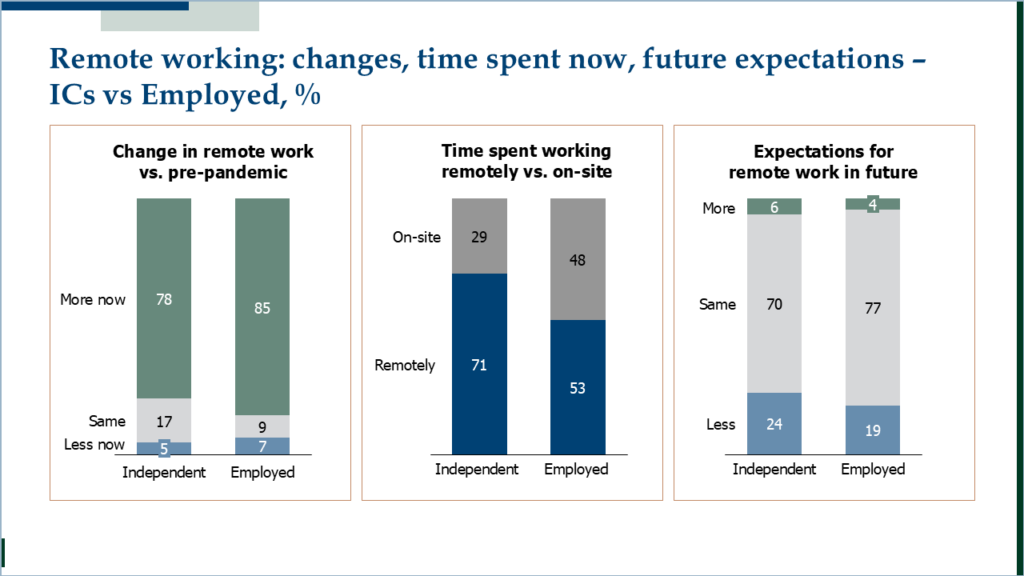
New tools
Lastly, it is worth exploring how consultants are working with AI. Eight out of ten consultants use AI in their work, with ChatGPT the most common tool. Usage is surprisingly similar across age groups, gender, and geographies, and between employed and independent consultants. The top four AI uses are idea generation, finding case studies, qualitative research, and synthesis. Consultants are highly aware of the potential risks of AI, with over 70% concerned about hallucinations, cybersecurity, confidentiality and source validation, and they are fluent in ways to manage these risks.
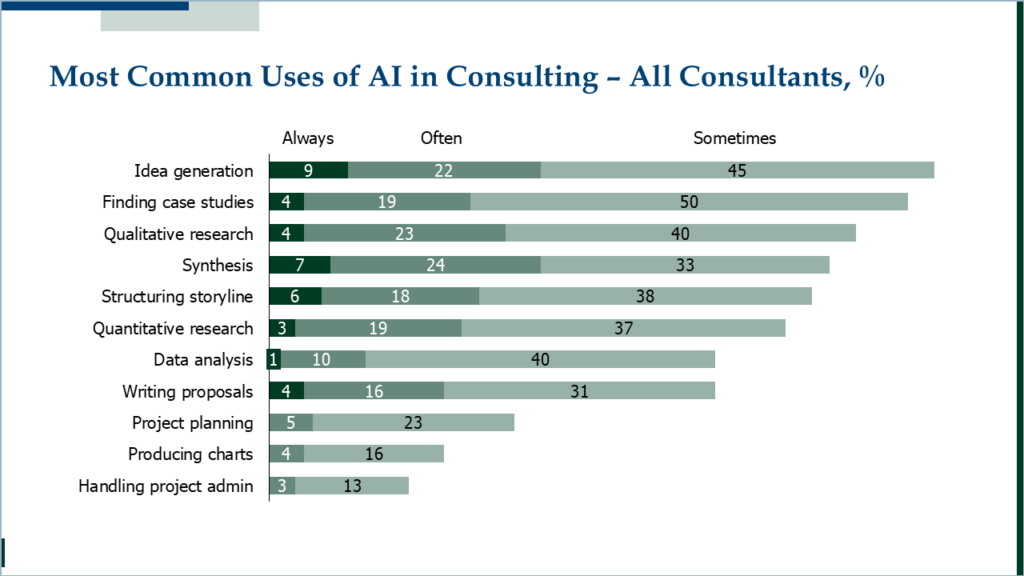
Changing the Game
Dena McCallum, co-founder of Eden McCallum, says the positive response from consultants about their independent status is gratifying. “We are really proud to have led the charge over the past 25 years in driving this transition to independent consulting, as a more fulfilling career choice for consultants and a better way of serving clients.”
To view highlights of our results, click here.
Follow us on LinkedIn to remain updated.

